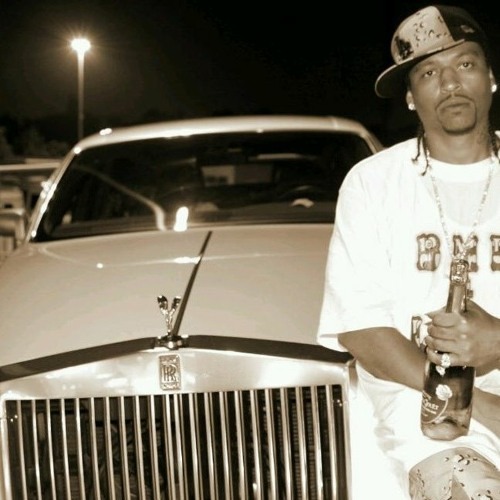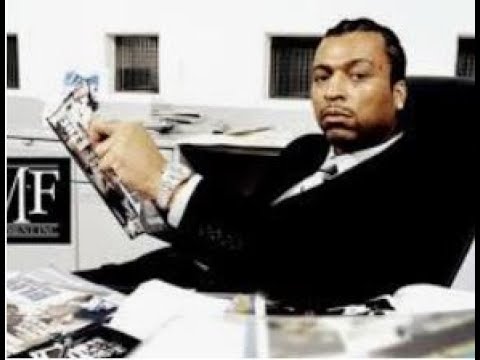Introduction
Demetrius “Big Meech” Flenory, a name synonymous with one of the largest drug empires in the United States, became a symbol of wealth, power, and street influence during the late 1990s and early 2000s. The founder of the Black Mafia Family (BMF), Big Meech, along with his brother Terry “Southwest T” Flenory, built a vast criminal enterprise that transcended drug dealing and entered mainstream hip-hop culture. This article delves into the life of Big Meech, his criminal empire, and the legacy he left behind.

Who Is Big Meech?
Demetrius Flenory, better known as Big Meech, was born in Detroit, Michigan, in 1968. He grew up in a low-income neighborhood and, like many others from disadvantaged backgrounds, was drawn into the world of illegal activities at a young age. What began as small-time drug dealing eventually led to the creation of one of the most powerful and notorious drug organizations in American history—the Black Mafia Family.
The Birth of the Black Mafia Family (BMF)
Big Meech and his brother Terry Flenory co-founded the Black Mafia Family in the late 1980s. Initially, the organization focused on drug trafficking, predominantly cocaine, in Detroit. However, by the early 2000s, BMF had expanded its operations across the United States, with significant operations in cities like Atlanta, Miami, and Los Angeles.
At the height of its power, BMF was reportedly distributing thousands of kilograms of cocaine monthly and generating hundreds of millions of dollars in revenue. The organization’s structure was highly organized, with different factions managing distribution, transportation, and money laundering.
Expansion into Hip-Hop Culture
Big Meech wasn’t just content with dominating the drug trade; he had ambitions to influence popular culture, especially the burgeoning hip-hop scene. BMF Entertainment was created as a legitimate business front for their illegal activities, but it also served as a gateway for Big Meech to associate with top rappers, producers, and music executives.
Through BMF Entertainment, Big Meech formed alliances with prominent figures in the hip-hop industry, including Young Jeezy. BMF became infamous for throwing lavish parties, driving luxury cars, and sporting diamond-encrusted jewelry. The organization’s extravagant lifestyle and street credibility helped them gain respect and influence in both the drug world and hip-hop culture.
The Fall of Big Meech and the BMF Empire
Despite their wealth and power, the law eventually caught up with Big Meech and his organization. In 2005, the Drug Enforcement Administration (DEA) conducted a massive investigation into BMF, leading to the arrests of Big Meech, his brother Terry, and dozens of other members. The investigation uncovered a sophisticated drug trafficking network that spanned multiple states, with a vast amount of evidence linking BMF to cocaine distribution, money laundering, and organized crime.
Big Meech and Terry Flenory were both sentenced to 30 years in federal prison for their involvement in the BMF’s drug trafficking operations. The downfall of BMF marked the end of an era, as the organization was dismantled, and its members were prosecuted.

Big Meech’s Life in Prison
Since his incarceration, Big Meech has remained a subject of fascination for both the media and the public. In prison, he has reportedly maintained a positive outlook, using his time behind bars to reflect on his life and make plans for the future. He has expressed interest in turning his story into a learning experience for others, advocating for non-violence and encouraging young people to stay away from the criminal lifestyle that led to his downfall.
In recent years, Big Meech has also become a pop culture icon. His story has been depicted in the Starz television series BMF, produced by rapper 50 Cent. The show provides a dramatized account of Big Meech’s rise to power and his impact on both the drug world and hip-hop culture.
The Legacy of Big Meech and BMF
Despite the fall of BMF, the organization’s legacy continues to live on in popular culture. Big Meech is often glorified in rap lyrics, and his larger-than-life persona has cemented his status as a legend in the streets. However, his story also serves as a cautionary tale about the dangers and consequences of the drug trade.
While Big Meech and his crew enjoyed unprecedented wealth and fame, their empire ultimately crumbled due to law enforcement efforts and the inherent instability of the drug game. Today, BMF’s story remains a symbol of the allure and pitfalls of the fast life, where brief moments of glory often end in tragedy.
Rehabilitation and Future Plans
In 2020, Big Meech received a slight reduction in his sentence as part of a broader push for criminal justice reform, particularly in cases related to non-violent drug offenders. While this reduction did not lead to his immediate release, it sparked hope that he could be granted early parole. As of 2024, there remains speculation about when Big Meech might finally walk free, and what his next steps might be.
Rumors have circulated about Big Meech’s desire to launch a legitimate business venture upon his release, using his life experiences to create a positive impact. His influence, both positive and negative, has shaped the lives of many people, and it will be interesting to see how he reinvents himself in the future.
Big Meech’s Influence on the Hip-Hop Industry
One of the most lasting impacts Big Meech has had is his influence on the hip-hop industry. BMF’s lavish lifestyle, complete with high-end fashion, luxury cars, and endless bottles of champagne, became synonymous with the image many rappers portrayed in their music. Artists like Rick Ross, Jeezy, and T.I. have all referenced Big Meech or BMF in their songs, further solidifying his status in the hip-hop world.
Moreover, BMF’s presence in Atlanta helped establish the city as a key hub for the hip-hop industry. The group’s connections with numerous artists and producers helped Atlanta become one of the most influential music cities in the country, a legacy that continues to this day.
Conclusion
Big Meech’s story is one of ambition, power, and tragedy. From humble beginnings in Detroit, he rose to become one of the most powerful drug kingpins in American history, controlling a vast empire that touched both the criminal underworld and the music industry. His life serves as both a lesson in the dangers of pursuing illegal wealth and a reflection of the cultural influence that figures like him can have.
As we look forward, it will be interesting to see how Big Meech’s story continues to unfold, both in reality and through his portrayal in the media. His legacy, for better or worse, will undoubtedly remain a significant part of the cultural landscape for years to come.



































